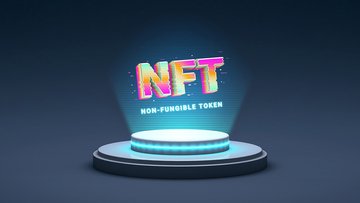NFT, an acronym for Non-fungible tokens, are a particular type of cryptographic token. The main characteristics of NFTs are irreplaceability, since non-fungible nor replicable, uniqueness, being associated with a single user or wallet, and indivisibility, given that they cannot be split as is the case , for example, with cryptocurrencies.
NFTs are usually associated with the art world, but more generally they lend themselves to the transfer of property rights to digital assets. However, whoever buys an NFT does not actually buy the asset, nor the copyright or the exclusivity of the reproduction.
These terms, in the context of blockchain, become rather fluid: the asset or work in fact remains on the author’s computer and the buyer has no right to reproduce it. Rather, the buyer of an NFT secures in legal terms} the right to claim ownership of the object.
The boom of these new tokens, in any case, is one of the most relevant phenomena in recent months, and some works have been sold by auction houses for millions of dollars. As far as disputes are concerned, however, the NFT sector will have to face some problems related to counterfeiting, money laundering and consumer protection in the coming years, especially as regards the right of withdrawal.





